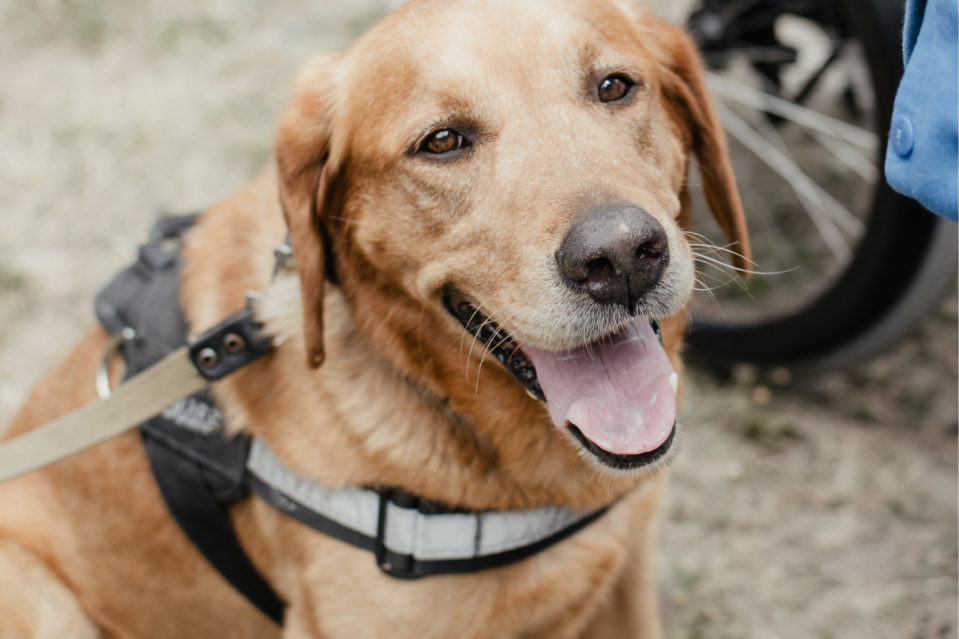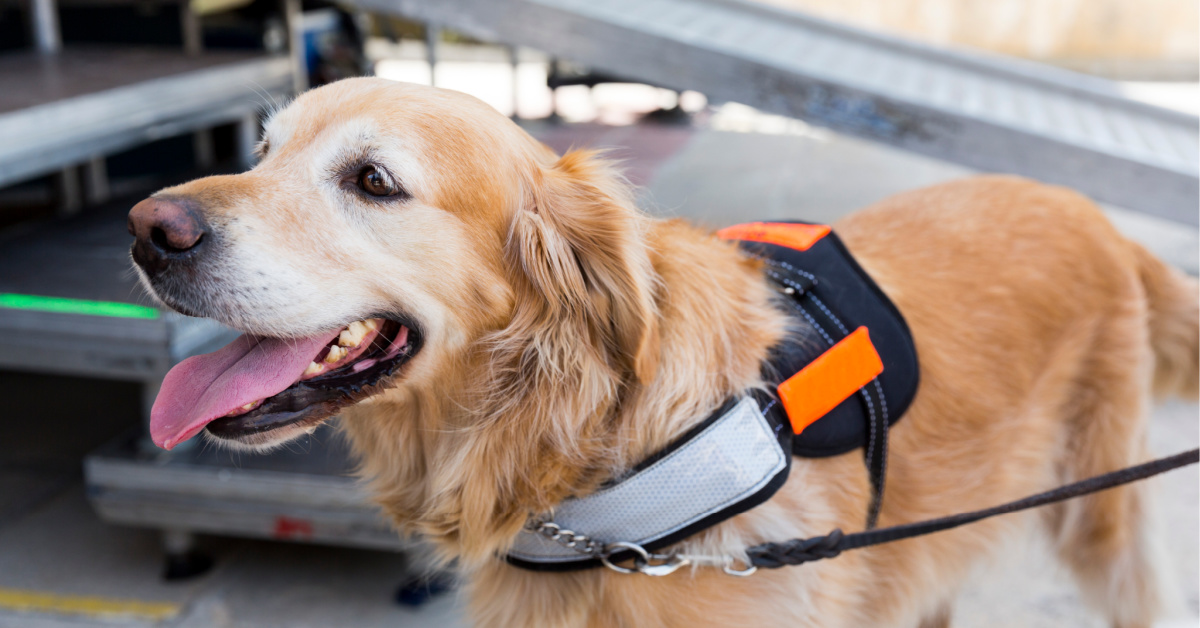Caring for a special needs pet can be intimidating and challenging at first. Dive deeper into how you can take care of your special needs Labrador while being as accommodating as possible to your and your dog’s needs
While it is not as easy as caring for one without any disability, this doesn’t mean that it’s not feasible. It may take more time and energy but at the end of the day. It will feel gratifying knowing that you have helped your pet stay as comfortable as possible.
Common Special Needs Among Pets.
Labrador retrievers, like other dogs, may have a variety of special needs. These special needs can range from:
- Lack of limbs
- Partial paralysis
- Deafness
- Blindness
- Ailments that can severely affect their way of life and care
Your Lab may have acquired some of these special needs through birth. In contrast, others may have acquired these special needs through accidents or even animal violence in some cases.
Labradors may also be predisposed to certain illnesses that can alter their way of life. For example, in this study, researchers found that the most common health issues seen in Labs were otitis externa, obesity, and degenerative joint disease.
Obesity does not necessarily change your dog’s lifestyle. However, it is still connected to specific ailments, such as cardiovascular diseases and diabetes.
So, how do you care for your Labrador retriever with special needs?
Tips for Caring for a Special Needs Lab
1. Consult a specialist.
The first thing that a pet owner with a special needs Labrador should do is consult their vet about making their pets’ lives more comfortable. Check if your vet does in-home visits to see how to conduct your dog’s care.
If your vet does not offer this, you can look at other pet experts who can do this in your area. Sometimes, a general vet cannot give you the best information about your Lab’s condition. So they might refer you to a specialist.
This will help you know more about your dog’s health, how to take care of your pet best, and how to stay on top of any new developments or treatments that could help your Labrador.
Just be sure to follow your vet’s or specialist’s instructions in the day-to-day care of your pet to ensure that your Lab receives the best care.
2. Stick to a routine.
It’s important to remember that a special needs Lab will not be able to do things as efficiently as an able-bodied Lab does. Thus, creating a routine and sticking to it will help you and your quadruped settle into a rhythm.
As a Labrador owner, there will be additional care points that you will have to do to keep your dog in top shape. For instance, you might need to regularly administer their medication or provide them with assistive care. Therefore, you must create a routine to help you integrate these additional needs into your daily life and work.
This will not be an overnight fix, as it will likely take some time for you to find a routine you like. What is important is that you get into a system that gives your dog the most comfort and gives you the best way to mix these special needs with your daily life.
Try also not to make any significant changes in your house and its setup. Although special needs Labradors have a wide array of handicaps that can impact their lives differently. Setting up a consistent and familiar place will help them greatly.
3. Get them the appropriate gear.

Some disabilities can be improved or made less daunting by using specific gear. Research and improvements in veterinary care have created ways to give pets more of a healthy lifestyle. This is especially true in dogs with mobility issues.
Today, different types of gear can assist in creating a more mobile life for your Labs. Examples include wheelchairs, harnesses, and dog ramps.
You can research these or ask your veterinarian or specialist for different gear options that can make life more enjoyable for your Labrador.
4. Utilize the online community.
Another thing that you should also consider in your journey with your special needs Labrador retriever is that you are not alone in this journey. There are probably many people who are also going through the same experience as you.
Support groups can be a source of inspiration when you see how well-adjusted pet owners are to their dogs when you see that special needs Labs can also live a relatively peaceful and regular life.
On a more practical side, these support groups could also give you the best experience-based information on what your Labrador might need.
Utilize the online community for new information and tips on how to take care of your pet. There are now multiple resources you could look up online regarding your Lab’s condition. We advise that you use these resources to better understand your Labrador’s special needs.
5. Pay attention.
More than anything, pay attention to how your Lab responds to the adjustments. Because the entire purpose of special needs care is to help your dog live a better life. You should always remember to consider their needs first. Consider routines beneficial to your Labrador and settle into that if they seem to be responsive to it.
In Labradors, watching their weight is especially necessary. Obesity is a top health-related issue that affects them.
You should also note mobility issues in Labradors since their lack of mobility makes it more difficult for them to move around, which contributes to weight gain. You should keep your Lab reasonably active and settle them into a steady activity rhythm.
If you need other tips on how to keep your Labrador retriever health. You can read more about it on our post here.
Some Advice for Pet Owners

As a pet owner, it is also vital that you take care of yourself. There may be times that you will feel like caring for your special needs Labrador is affecting your health, so it’s critical that you give time to yourself as well.
Celebrate the milestones that you achieve throughout your journey with your special needs Lab. Take the journey one step at a time and look back on how far you both have gotten. This will ease the difficulty of adjusting to new changes.
If other people in the house live with you and your Labrador retriever, make sure that they are also accustomed to how best to take care of your dog. Sometimes, taking care of a Labrador with special needs can be a team effort, and knowing that people you trust can also take on your Lab’s care can be helpful.
Conclusion
Just because your Lab has additional needs doesn’t mean that there is anything wrong with them. They also deserve love and care as much as any other Labrador or pet.
Although they may require more attention and care than other dogs, they can bring joy to your life. Keep in mind the items that we’ve mentioned in this article and try to use them as best as you can in caring for your special needs dog.
Labrador retrievers with special needs can take time to get used to, and taking care of them is a significant learning curve. It is only reasonable to encounter difficulties along the way, but you should continue learning as you go.
Ultimately, you will settle into a rhythm that will help you take care of your Lab best. You will just need to invest a lot of time and patience to make sure that you are giving them the best care possible.







